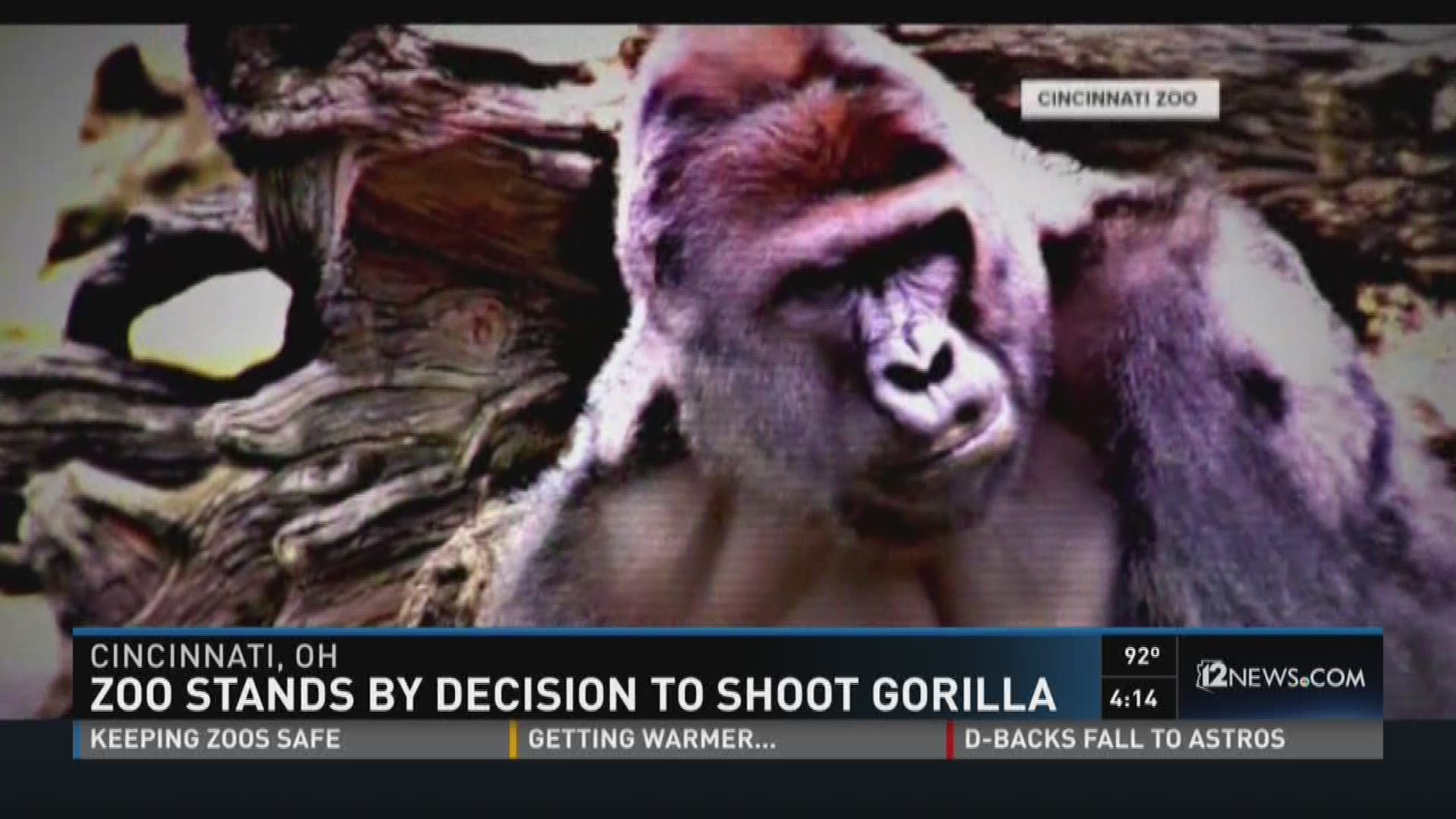PHOENIX - There is a distinct difference between what happened at the Cincinnati Zoo when a small child fell into a 450-pound gorilla’s enclosure, and what's happening at the Phoenix Zoo, where the orangutans can walk right up to you.
“We wanted people to get up close and have that experience, but obviously not put them in a dangerous situation,” said Senior Primate Keeper with the Phoenix Zoo Denise Wagner.
Triple-pane glass separates the orangutans from the visitors. It allows both to observe each other up close and personal. It almost makes you wonder who’s watching who. While the orange primates seem gentle and social, like most zoo animals, they are not tame.
”A better term would be habituated. They're used to being around people but that doesn't take away their wild instincts,” said Wagner. “Us as professional animal keepers keep in mind it is still a wild animal. And even if we work with them closely and we work with them daily -- they’re still a wild animal.”
Zoo keepers don't even go into the enclosure. They do what's called protected contact to keep themselves safe.
“It's not that they're inherently aggressive. They are not, but they're big animals. They're strong and they can inadvertently hurt us,” said Wagner.
Zoo officials say most of the exhibits in the zoo have primary and secondary barriers depending on the animals. All are checked on a daily basis.
“When the keepers come in they check their animals. They check the habitat. Any time we have an overnight storm come through, that's one of the things we do as well, check the barriers to see if any breaches have been made,” said Linda Hardwick, director of communications with the Phoenix Zoo.
A visit to the zoo can be an exciting adventure for any small child. Sometimes with a lot excitement they can get themselves into trouble. Zoo officials encourage parents to keep an eye on their kids and respect the barriers.
“When you go anywhere -- whether it be the store or to a friend’s backyard barbecue that has a pool or to an amusement park -- that you always know where your children are,” said Hardwick.

